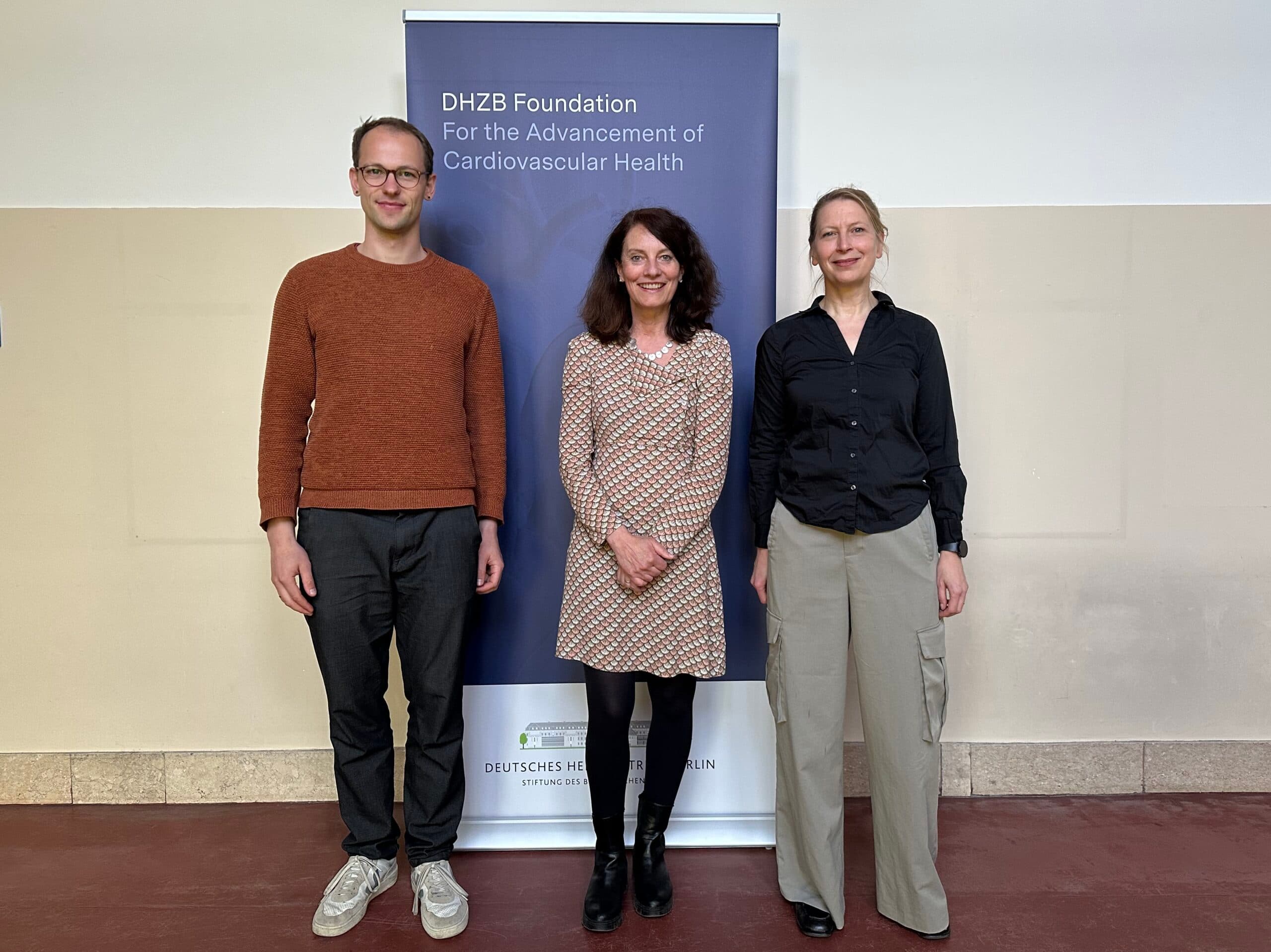Cardiac amyloidosis (CA) is a life-threatening disease of the heart muscle, in which the deposition of misfolded protein chains impairs cardiac function. Prof. Frank Edelmann (Department of Cardiology, Angiology & Intensive Care Medicine, CVK) explained the clinical challenges in diagnosing CA in order to initiate disease-specific therapy. Accordingly, the 2923 ESC guidelines recommend, for the first time, a structured approach using multiparametric examinations to differentiate between various forms of cardiomyopathies. The Amyloidosis Center Charité Berlin (ACCB) has been offering specialized expertise in the initial diagnosis and long-term treatment of patients with amyloidosis at three clinical sites since 2017.
Life Molecular Imaging, originally a spin-off from Bayer and later acquired by Life Therapeutics, develops innovative radiopharmaceuticals for diagnosing serious diseases. Dr. Iris Hardewig (Life Molecular Imaging) demonstrated that PET imaging with 18F-florbetaben (FBB) may detect CA early, directly, and non-invasively. Initial study results also suggested that the two main types — AL and ATTR amyloidosis — can be differentiated based on the PET tracer’s different binding behavior to the fibrils.
Dr. Andrew Stephens (Life Molecular Imaging) presented first data on 18F-GP1, a PET tracer for visualizing active thrombi. The technology shows great potential for identification of culprit thrombus in cryptogenic stroke and detection of thrombosis throughout the body as well as therapy monitoring e.g. in valve thrombosis or left ventricular thrombus.


